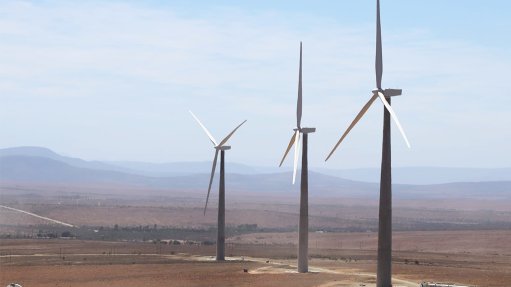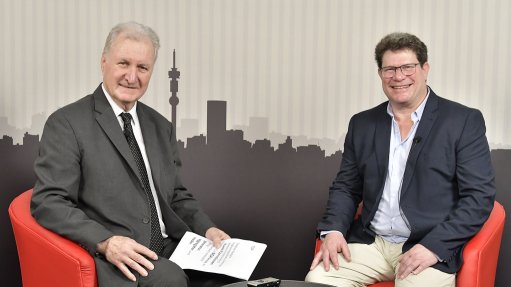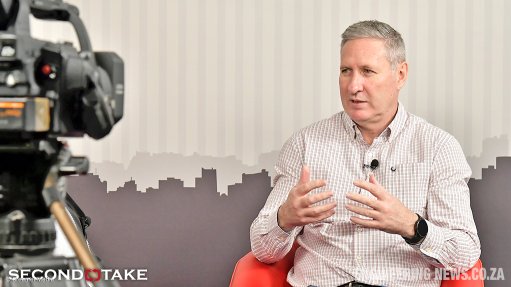Learnings from other markets can power South Africa’s energy transition
This article has been supplied and will be available for a limited time only on this website.
By: Shailin Moodley - Chief Technology Officer at EXSA
The last four years have seen an unprecedented shift in global energy dynamics as power demand surged in the wake of COVID-19, the war in Ukraine upended traditional energy supply chains, and climate change risks continued to heighten. In response, many power markets have, or are in the process of transitioning from centralised monopolies to decentralised, competitive ecosystems, ushering in a new era for energy security, economic growth, and sustainability.
To promote competition, increased capacity and additional investment, South Africa must make the transition to a liberalised market quickly. However, this needs to be balanced with a cautious approach to promote energy security and a stable electricity system.
And policy alone is not enough to chart the course to this future. The willingness to learn from the successes and challenges faced by other countries that have taken the journey toward liberalised energy markets can provide much-needed direction.
Red Flags: Cautionary tales for South Africa
South Africa is set to launch the wholesale power market in 2026. The South African Wholesale Electricity Market will be a critical step in our energy reform and seeks to open the sector for increased competition, transparency, and economic efficiency in the sector.
While the momentum is encouraging, a lot can go wrong when introducing a new market. The experiences from markets ahead of us on the curve offer crucial lessons in what can go wrong when a market is opened.
Texas: Price volatility is a major pitfall
Texas’s “energy-only” market has highlighted the drawbacks of price volatility in the sector. The model works by paying power producers only for the energy they produce, instead of making capacity payments as well. While this approach attracts significant investment, it can result in extreme price hikes when supply is low. For example, the 2021 Winter Storm Uri resulted in millions of Texans losing power when wholesale prices spiked to their maximum cap, causing devastating losses for market participants and extreme financial pressure for consumers.
This case holds a major warning for South Africa: a market designed without robust mechanisms for grid stability and capacity payments could lead to extreme price volatility and a potential loss of public trust.
India: Utility debt dampens investment interest
For India, the financial woes of its state-owned distribution companies have hindered liberalisation efforts in the electricity market. Decades of regulated, subsidised tariffs have rendered these utilities debt-laden – dampening prospects for long-term Power Purchase Agreements (PPAs) with private generators. This created a high-risk environment and tends to slow down investment.
Similarly, some of our utilities also hold significant debt and therefore face a similar risk. A transparent plan to address this debt or empower distributors to participate in the market is crucial.
Australia: Regulatory football hampers project timelines
The energy transition in Australia has been negatively impacted by inconsistent long-term government policy. Ongoing shifts in political direction and the lack of a stable, established emissions framework have subdued investment appetite. New generation projects have therefore been slow to come online, resulting in price volatility and supply consistency issues.
For South Africa, this underscores the importance of robust consensus on energy policy. The Integrated Resource Plan and other key frameworks must be treated as long-term blueprints, not as political footballs, to inspire trust in the system and energy security.
Green flags: Optimistic drivers for South Africa
Despite the challenges faced in other markets, the global experience also provides a blueprint for success. Positive outcomes from other countries offer key insights into the levers that can be pulled to navigate successfully towards an open energy market.
Nordics: The power of integration
The Nordic countries' success in terms of energy transition is built on a strong foundation of cross-border grid integration. Nord Pool market allows power to flow freely between countries, providing a vast balancing area and reducing reliance on local supply and, inherently, diversifying supply.
As a member of the Southern African Power Pool, South Africa can leverage this model. By strengthening its regional interconnections and embracing transparent trading, it can improve energy security and provide a larger, more attractive market for investors. It also holds the opportunity to spearhead and support the energy transition for the Southern African region.
Brazil and Australia: The rise of bilateral markets.
Brazil's dual-market model and Australia's open market have shown the power of private-to-private transactions. These approaches enable large industrial and commercial customers to bypass the traditional utility and sign direct PPAs with private generators. This provides a clear, bankable business case for new generation, independent of government procurement.
South Africa's move to remove the licensing cap for private generation is already unlocking a wave of private investment, with over 100 projects in the pipeline. This is a strong indicator that the market is moving towards a more efficient, customer-focused model. Notwithstanding this, grid capacity must urgently be addressed to realise the value of these projects. Without an effective transmission system, increased production is nullified.
Japan: The catalyst of the crisis
The opening of Japan's energy markets, which were muted for decades, was fast-tracked by the Fukushima disaster - a Level 7 nuclear crisis on the International Nuclear and Radiological Event Scale. The crisis created an undeniable and urgent mandate for change.
Similarly, South Africa’s ongoing energy crisis has forced political and social will for reform. The urgency enabled the unbundling of Eskom and the rapid introduction of new legislation, like the Electricity Regulation Amendment Act. This "crisis as a catalyst" is a powerful driver for change that can overcome long-standing barriers.
A perfect storm of policy promulgation and modernisation
What is unique about South Africa’s energy transition is that we are not just modernising our grid; we are also liberalising the market at the same time. With new policies driving competition and cutting-edge technologies coming online, we have the opportunity to learn from global markets and build a more efficient and equitable energy future for South Africa.
Article Enquiry
Email Article
Save Article
Feedback
To advertise email advertising@creamermedia.co.za or click here
Comments
Press Office
Announcements
What's On
Subscribe to improve your user experience...
Option 1 (equivalent of R125 a month):
Receive a weekly copy of Creamer Media's Engineering News & Mining Weekly magazine
(print copy for those in South Africa and e-magazine for those outside of South Africa)
Receive daily email newsletters
Access to full search results
Access archive of magazine back copies
Access to Projects in Progress
Access to ONE Research Report of your choice in PDF format
Option 2 (equivalent of R375 a month):
All benefits from Option 1
PLUS
Access to Creamer Media's Research Channel Africa for ALL Research Reports, in PDF format, on various industrial and mining sectors
including Electricity; Water; Energy Transition; Hydrogen; Roads, Rail and Ports; Coal; Gold; Platinum; Battery Metals; etc.
Already a subscriber?
Forgotten your password?
Receive weekly copy of Creamer Media's Engineering News & Mining Weekly magazine (print copy for those in South Africa and e-magazine for those outside of South Africa)
➕
Recieve daily email newsletters
➕
Access to full search results
➕
Access archive of magazine back copies
➕
Access to Projects in Progress
➕
Access to ONE Research Report of your choice in PDF format
RESEARCH CHANNEL AFRICA
R4500 (equivalent of R375 a month)
SUBSCRIBEAll benefits from Option 1
➕
Access to Creamer Media's Research Channel Africa for ALL Research Reports on various industrial and mining sectors, in PDF format, including on:
Electricity
➕
Water
➕
Energy Transition
➕
Hydrogen
➕
Roads, Rail and Ports
➕
Coal
➕
Gold
➕
Platinum
➕
Battery Metals
➕
etc.
Receive all benefits from Option 1 or Option 2 delivered to numerous people at your company
➕
Multiple User names and Passwords for simultaneous log-ins
➕
Intranet integration access to all in your organisation

















